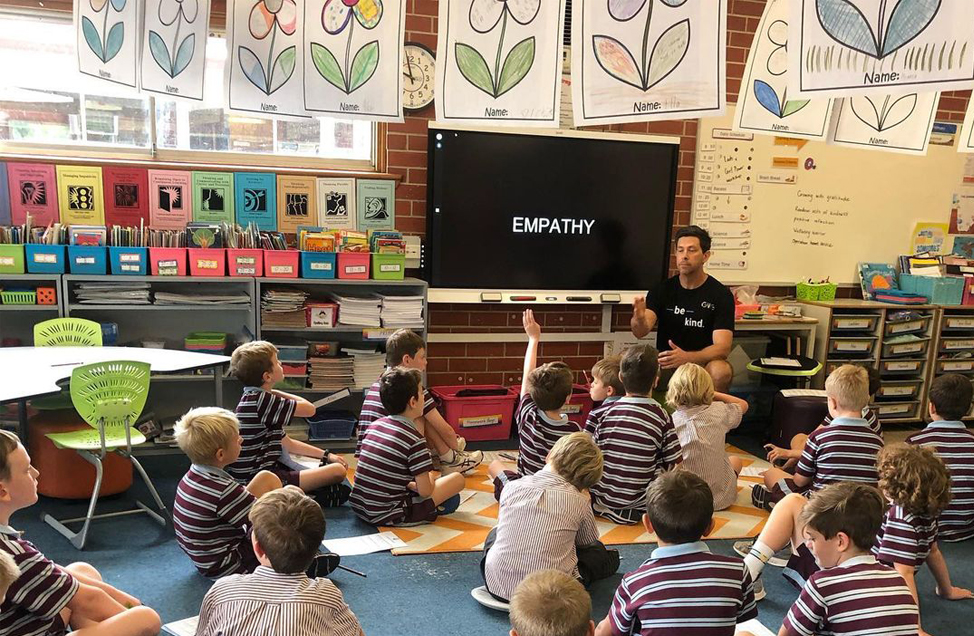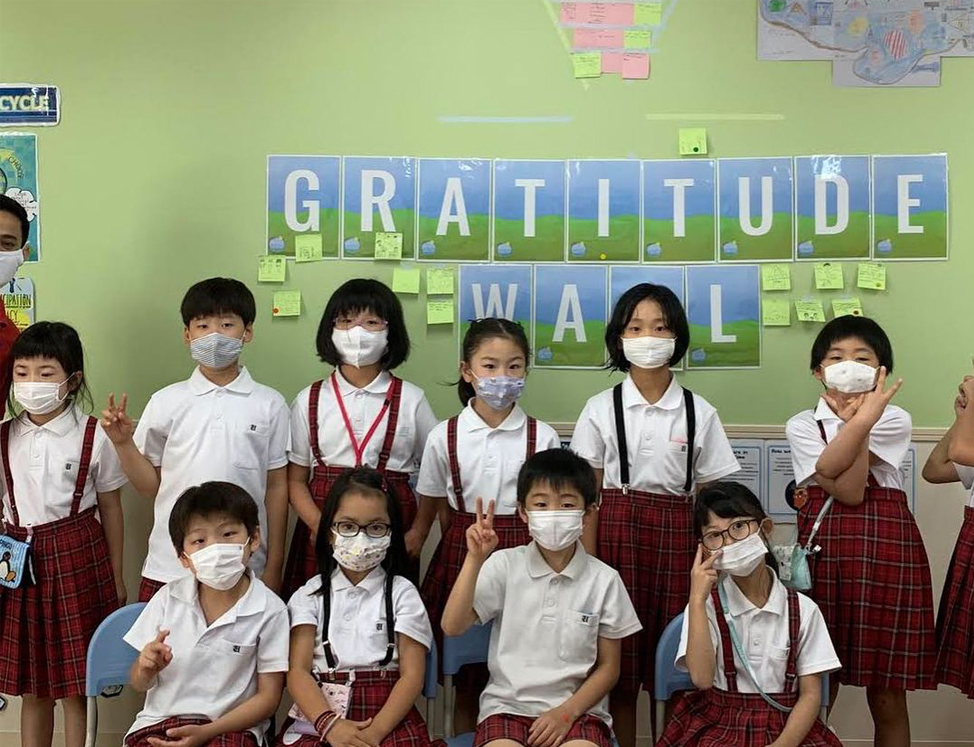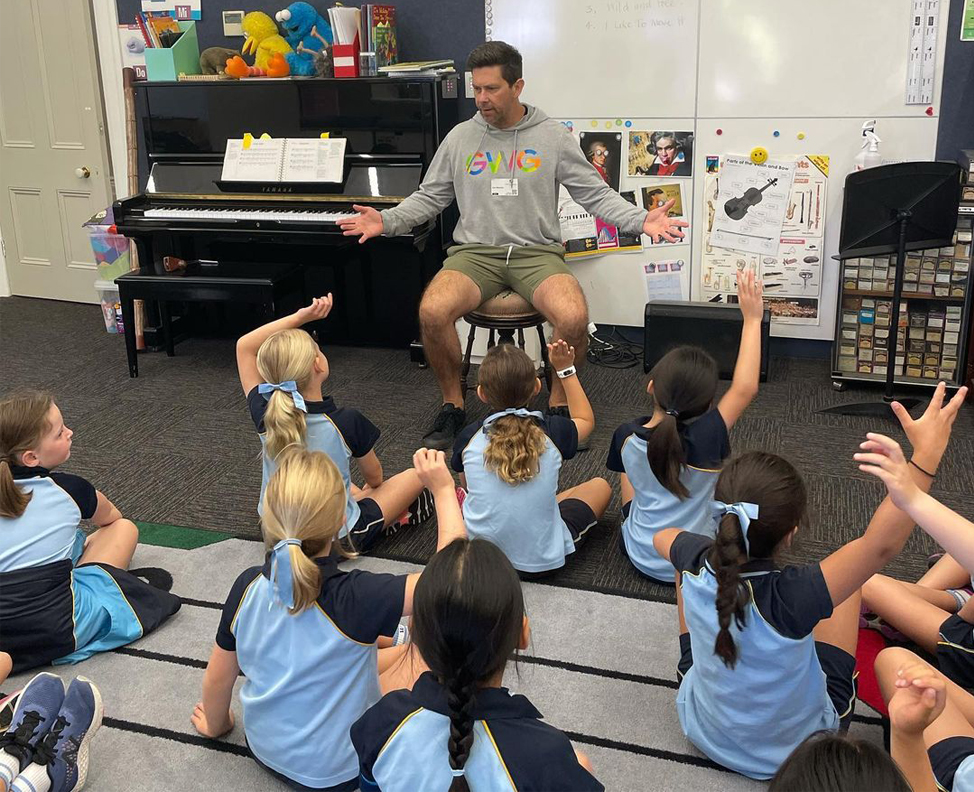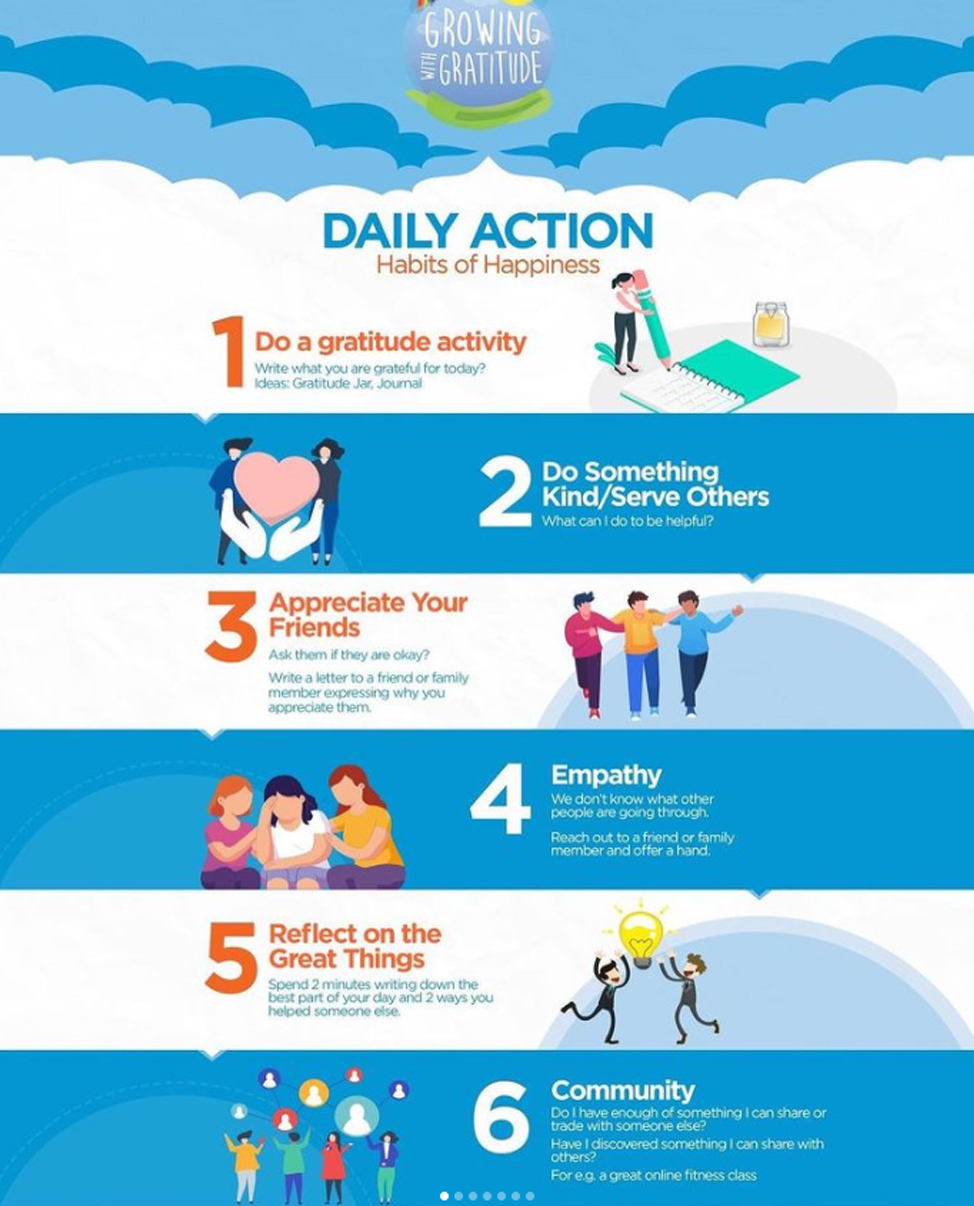30 November 2021

Ash Manuel
Bachelor of Education (Junior Primary and Primary)
Resilience education initiative, Growing with Gratitude, was born out of primary school teacher Ash Manuel’s search for a program that empowers children through positive psychology, tackling children’s mental wellbeing and adversity head on in the classroom.
In the years following his Bachelor of Education (Junior Primary and Primary) study at UniSA, Ash absorbed everything he could in his classroom as a teacher at Immanuel Primary School. He also observed programs in this space created by Psychologists and Positive Psychologists where frameworks and theories were established, but not user-friendly resources for time poor teachers.
With a mission to help these teachers and schools to strengthen and protect young people's mental health, Ash combined these skills with resilience education principles to establish Growing with Gratitude, a fully resourced resilience education program.
The Growing with Gratitude programs are built on the five habits of happiness – gratitude, kindness, empathy, service and positive reflection – to encourage greater resilience and contentment.
Bolstered by his own lived experience with how physical activity and active gratitude had a significant impact on his own mental wellbeing, Ash has been imparting this wisdom to schools all around the state to nurture the next generation of happy, resilient kids.

Growing with Gratitude is now a thriving social enterprise with reach in more than 800 schools and 240,000 students in 40 countries all over the world.
“Traditionally psychology and student wellbeing has been associated with waiting for issues to arise and then helping the person work through the situation,” says Ash. “The approach Growing with Gratitude takes is intervention, meaning we teach young people skills of resilience by showing them ideas of how to deal with challenges and build their tool kit.”
“We are teaching young people skills to overcome adversity and challenges, as well as teaching them to be good citizens. It's teaching skills and moving forward from challenges, but also highlighting that they’re responsible for it.”
Having previously joined forces with the South Australian State Government, Adelaide and St Kilda Football Clubs, and Microsoft with Minecraft, to deliver the resilience programs, this month also marks a new partnership for Growing with Gratitude.
Ash and his team have joined the Innovation Collaboration Centre’s coveted Venture Catalyst Social Enterprise Accelerator at UniSA, designed to help early-stage social entrepreneurs plan and successfully execute their journey to set up a new and innovative social business.

The Social Enterprise category is supported by the Pank Family to develop social innovation and enterprises by UniSA students or alumni. Through the Venture Catalyst program, the Pank Family have ensured that new ideas that come out of the University have the support and mentoring needed to set up a new and innovative social enterprise in South Australia.
In partnership with the ICC, Growing with Gratitude will work alongside their pool of global experts and ICC’s community of space and high-tech startups, where they will be able to collaborate with like-minded innovators, to achieving their goals of empowering as many people around the world.
For Ash this means scaling the business, so he can visit even more schools around the country, developing new programs in addition to the Five Habits of Happiness and GRIT, and delivering these resources in fresh, dynamic and innovative ways.
Ash has already dabbled with game delivery of the program through the partnership with Microsoft and the computer game phenomenon Minecraft, alongside more traditional games like Yahtzee and gratitude dice games, and is hoping to do more.
“Games are such a powerful tool for kids to learn through. If they're enjoying it, they're laughing, they're having fun and learning at the same time, it adds to that positive learning experience.”
“At the end of the day, our attention spans as a population are poor at the moment with the pandemic, so if they're involving games we find their attention span is a lot longer and it ultimately helps learning these skills.”

While it’s important to establish these skills in early education settings, it’s never too late to begin practicing these valuable resilience tools and skills to lead healthy, successful and productive lives. In this ever-changing world, skills of resilience and being able to adapt are vital for everyone.
Ash says resilience education and finding what works for you – in his case physical education and gratitude – means practicing how to move forward from challenges or deal with challenges as they come up.
“The great thing is we can all actually practice it. It doesn't matter if you're three years-old or 103, these skills are relevant for everyone.”
“Like learning a skill or a sport, we can practice scenarios that could come up and learn skills to deal with different situations, particularly when coming from a place of feeling grateful, being empathetic, reflecting on the good things that happen in life, service, doing things for other people, but also kindness.”
“They’re the key things that really lead to resilience and being a happier person.”




